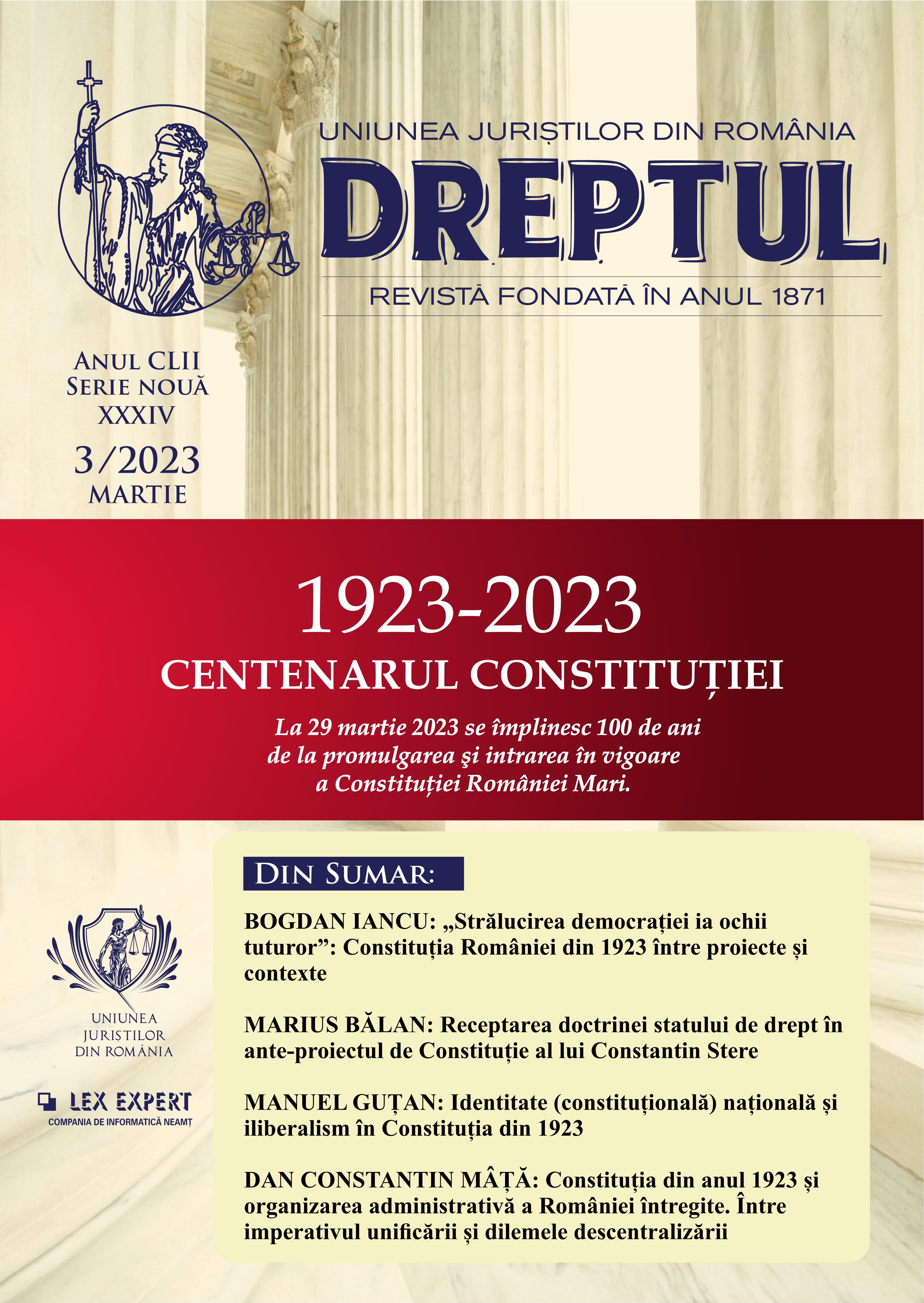Libertatea de a contracta
Freedom to contract
Author(s): Constantin-Claudiu Ulariu, Marta-Claudia ClizaSubject(s): Civil Law
Published by: Uniunea Juriștilor din România
Keywords: contract; structure; freedom; effects; dimension;
Summary/Abstract: In a democratic society, marked by an accentuated individual liberalism, assuming the behavioural indeterminism of each citizen in the concrete way of constitutional manifestation within the society, including through the unrestricted establishment of the option to exercise the subjective civil rights, as well as to determine the mandatory area that intends to assume, the freedom to contract or the autonomy of will, as it is also known, represents a unique and inherent value of personal independence, as well as an indispensable factor for the social and economic progress of each state. Therefore, the contractual freedom is revealed as an institution of civil law, but at the same time as a exigency of economic efficiency and of social progress, a genuine tool for translating the personality of each individual in the conventional-obligatory legal relationships that they outline, as well as a source of adaptation to the particular needs in the way in which the conventional activities are carried on, that is desirable and inherent to a permanently emerging society. Limiting the civil legal relations in some predetermined or rigidly outlined templates, by the rules of civil law, specific to the contractual matter, would constitute not only a source of inhibition in the carrying on and development of the conventional law relations, but it would even be harmful to society, by reducing the private initiative, always aimed at finding new opportunities for action and innovative valences. That is why, the freedom to contract has crystallized as an independent and well-defined institution since the late medieval period, in which the economic and trade relations in Europe experienced an unprecedented advance, and the autonomy of will, in determining the structure and contractual limits, constituted one of the main engines for the evolution of law and a dynamizing tool in the field of the market economy. Therefore, at present, contractual autonomy represents an acquired „good” of the civil law, but whose structural perspectives have experienced a continuous transformation and reinterpretation in the international law, and currently attracts special attention from the Western specialised doctrine, a fact that determines not only the necessity of its reverberant contouring in the Romanian internal law, but also the adjustment of the new dimensions of interpretation to the Romanian legislation. Through the present study, we aim to individualize the principled aspects that particularize this fundamental institution of the civil law and to exhibit the innovative doctrinal standard that enriches the dimensional aspects of this form of individual freedom of constitutional origin.
Journal: Revista „Dreptul”
- Issue Year: 2023
- Issue No: 03
- Page Range: 81-89
- Page Count: 9
- Language: Romanian
- Content File-PDF

